By: Emma Sahly
¡Bienvenidos a la finca!
This week has been filled with excitement as we relocated from Estacion Biologica Monteverde to our homestays and started working on a sustainable coffee farm, Life Monteverde. Many homes were in close proximity, and I was especially lucky because our home was less than a kilometer away from the farm so my roommates and I were able to walk every day. We came to really enjoy the school, mini-market, and overlook of the mountains that we passed by on our way to “work”.
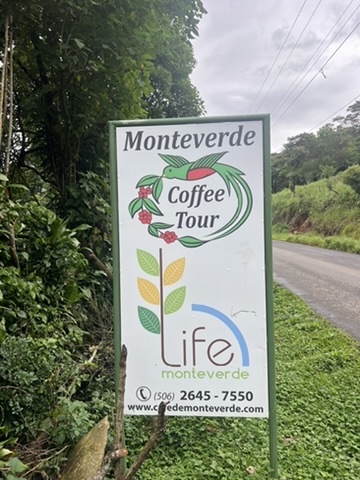
It seems that the rain from the cloud forest decided to travel with us as I found myself forgetting my umbrella all too often at the wrong time, but the rain made for some of the most beautiful landscape and richest soil I had ever seen.
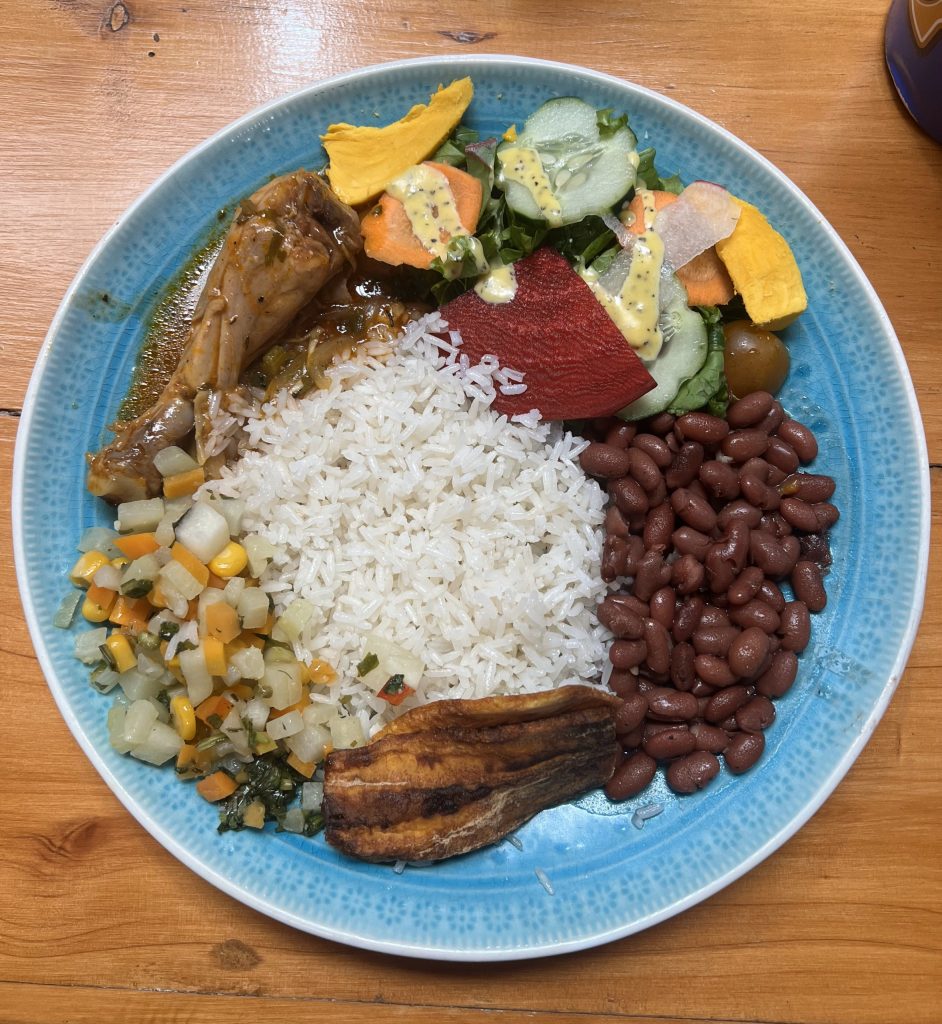
Our first day on the farm, we were introduced to the kind and welcoming staff and served a wonderfully colorful lunch of chicken, rice, beans, plantains, salad, and mixed vegetables. After we finished enjoying our meal, we were delighted to find out that almost everything came straight from the farm itself! The richness of the food and relaxed family-style dining hall made the farm feel like home right away.
After lunch, we were instructed to go off in groups and give ourselves a tour. Each group was given a specific aspect of sustainability to look for, such as protection of biodiversity, soil nutrient cycling, community engagement, etc. Between intercropping, composting, fertilizing with microorganisms and maintaining forest cover, we quickly realized the complexity of Life Monteverde’s coffee growing process and the multidimensionality of sustainability in general.
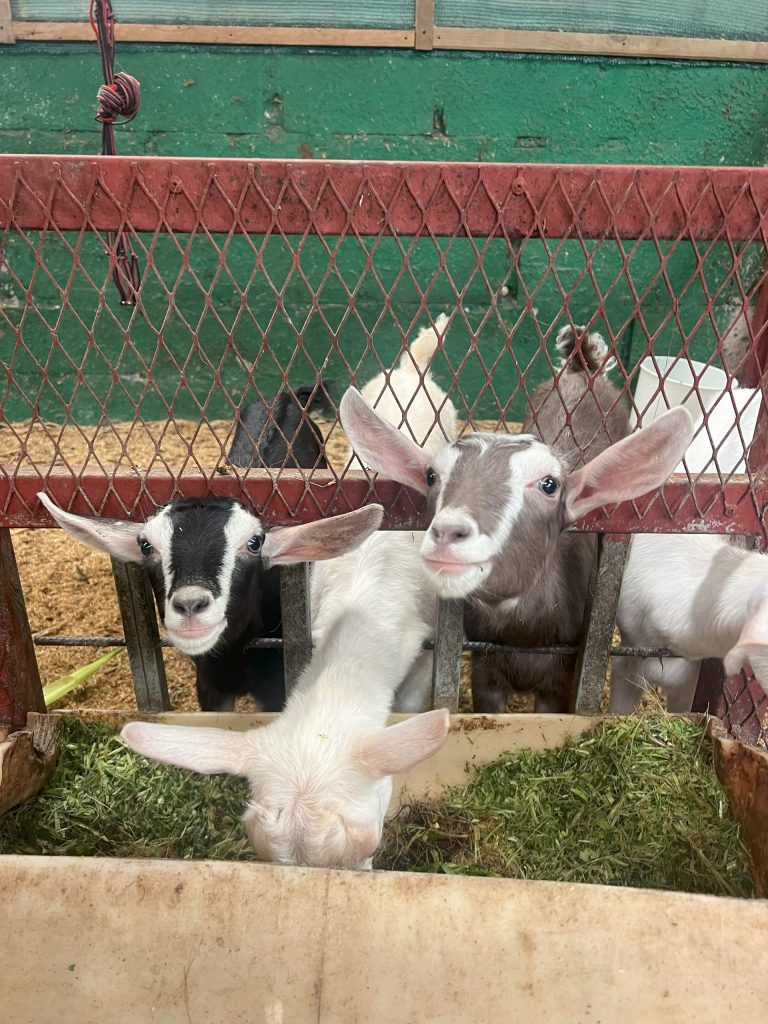
A guided tour later on in the day reinforced this as we walked through fields of arabica coffee plants flanked by lime, banana, avocado and mango trees. We learned all about the life cycle of the plant as well as the meticulous harvest and roasting processes that make the coffee so rich and smooth. At the end of the tour, we visited a giant guava tree that was over 100 years old. Seemingly straight out of a story book, this elegant tree was actually the inspiration for Life Monteverde’s logo and provided not only sweet and juicy guava but also a challenge for tree-climbing globies of all abilities.
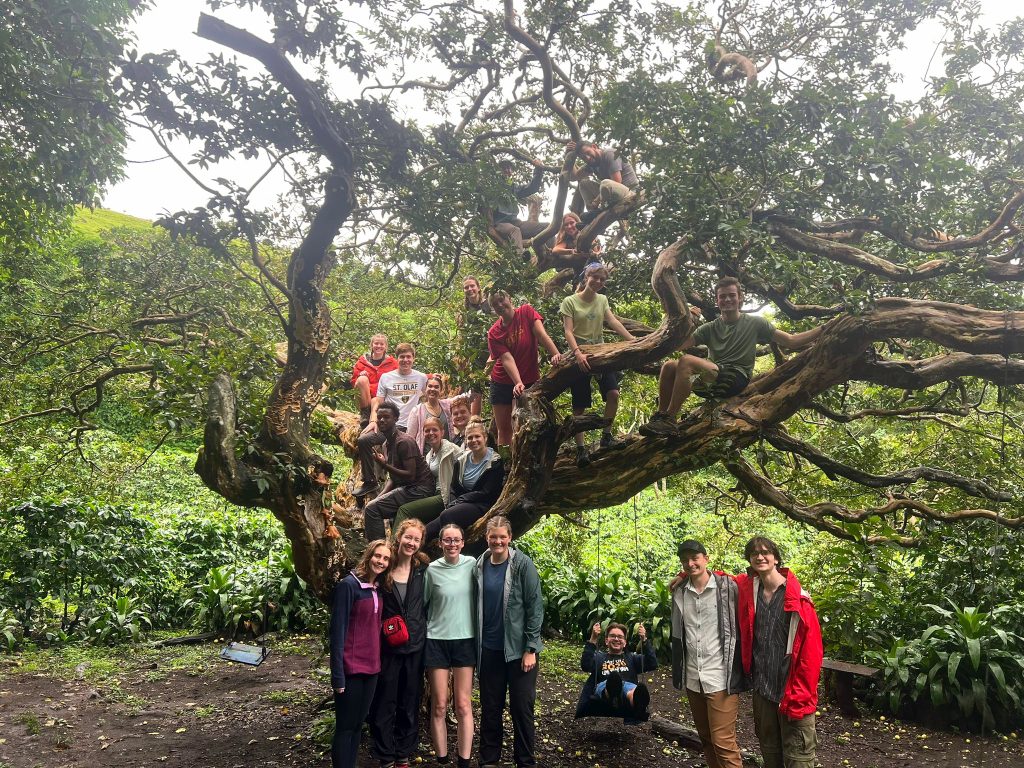
The following days on the farm brought fulfilling work, interesting education and of course, delicious coffee. We split into groups with everyone getting a chance to rotate between tilling and working soil, making biofertilizer “lasagna”, planting trees and corn at a nearby farm, performing trail maintenance, cleaning the chicken and goat barn, painting a mural, and cooking with the talented (and patient) kitchen staff. Each location was fun in of itself, but the emphasis on sustainability placed everywhere we went was what truly made each experience memorable.
For example, we were taught how to make fried plantains and fresh coffee in the kitchen. The peels of the plantains and leftover coffee grounds were saved and brought to the compost to be used for nutrient-rich soil. While working in the fields, weeds were pulled out and put to the side to dry as another way to return organic compounds to the ground. Vegetables growing in a greenhouse were watered by a drip irrigation system that saturated the soil in water and then recycled the excess to be used again. The farm itself was bordered by natural forest which illustrated how agriculture can coexist with conservation and protection of biodiversity.
Sustainability was everywhere at Life Monteverde, which was inspiring to see after all that we’ve learned about the direct effect that climate change has on Costa Rica and Monteverde in general. We happened to be here during the rainy season, but what used to be the normal amount of over 100 rainy days per year in Monteverde has shrunk to less than 30 days on average. When it does rain, the weather is more extreme and can lead to landslides that cause infrastructure damage (as a couple of our students experienced when they went a day without any running water). Fortunately, more and more farms in Costa Rica like Life Monteverde are adopting sustainable practices that restore the health of the forest, cascading to other aspects of the environment and ensuring that this beautiful country can be appreciated by generations to come.
After each day of “work”, the globies got to go home to their host families and enjoy environments of all varieties. Some homes, such as ours, were on the more tranquil side with comforting meals and relaxing conversation. Others had kids, cats, dogs, and even a curious chicken which added constant fun and excitement to the homestay experience. Although it was initially a little sad for the group to separate, we soon settled into the routine of coming home from the farm and spending time with our families, making connections and sharing lots of stories and laughter. Every day I was excited to see our host mom, Elizabeth, and recount all of the activities we did as we sat around the table for dinner. Although she spoke very good English, we often conversed in Spanish which was a great opportunity for me to dust off my shelf of vocabulary and listen to her animated and lively stories in her native language. Similar to the other groups, our home was decorated with beautiful art and always smelled of delicious cooking. Our last night, Elizabeth showed us how to make empanadas, which are small pockets of beans, cheese, chicken, or other types of meat encased in a crunchy wrap of maize tortilla cooked in oil. She made the tortilla mix and showed us how to roll them gently into perfect circles that we could place ingredients in and cook. We enjoyed them together for dinner along with fresh pico de gallo made entirely from scratch. It was the kind of dish you could try over a hundred times to make again without ever being able to replicate.
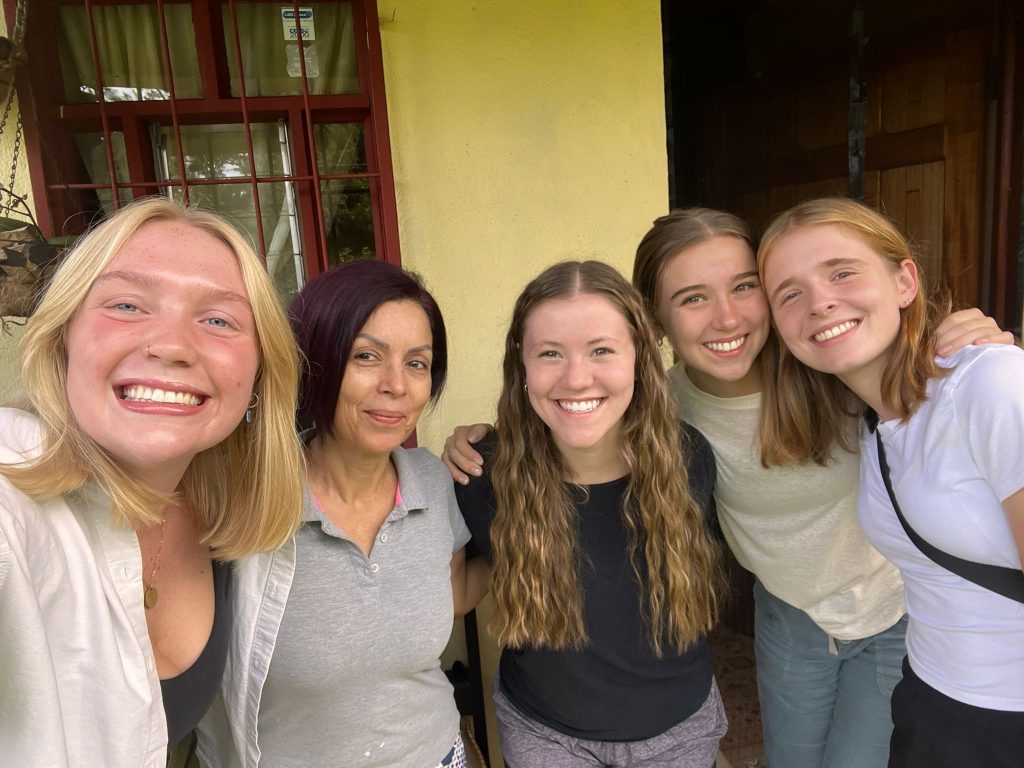
At night, we played card games while Elizabeth watched and patiently helped us string together Spanish phrases, instructions, and even some smack-talk. We relaxed together and exchanged stories about life in Minnesota and Monteverde, finding a surprising amount of common ground. It truly felt like we were at home. Unfortunately, three days passed quickly and before we knew it we were already saying our goodbyes. It was difficult to leave Elizabeth and the staff at Life Monteverde after all of the experiences we shared this past week. However, we will carry the special memories made at the farm and with our host families with us for the rest of the semester and beyond.
I want to conclude this post by expressing my gratitude for everyone we met this week and all of their kindness, patience, and inspiration to be mindful of sustainability. It is difficult to close out even a small chapter of the story, but we have so much to look forward to ahead of us! We will miss the people and places of Monteverde, but we are excited to return to the city where it all began…San Jose! ¡Hasta pronto!

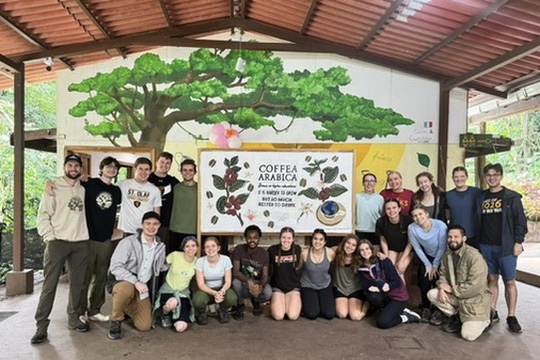
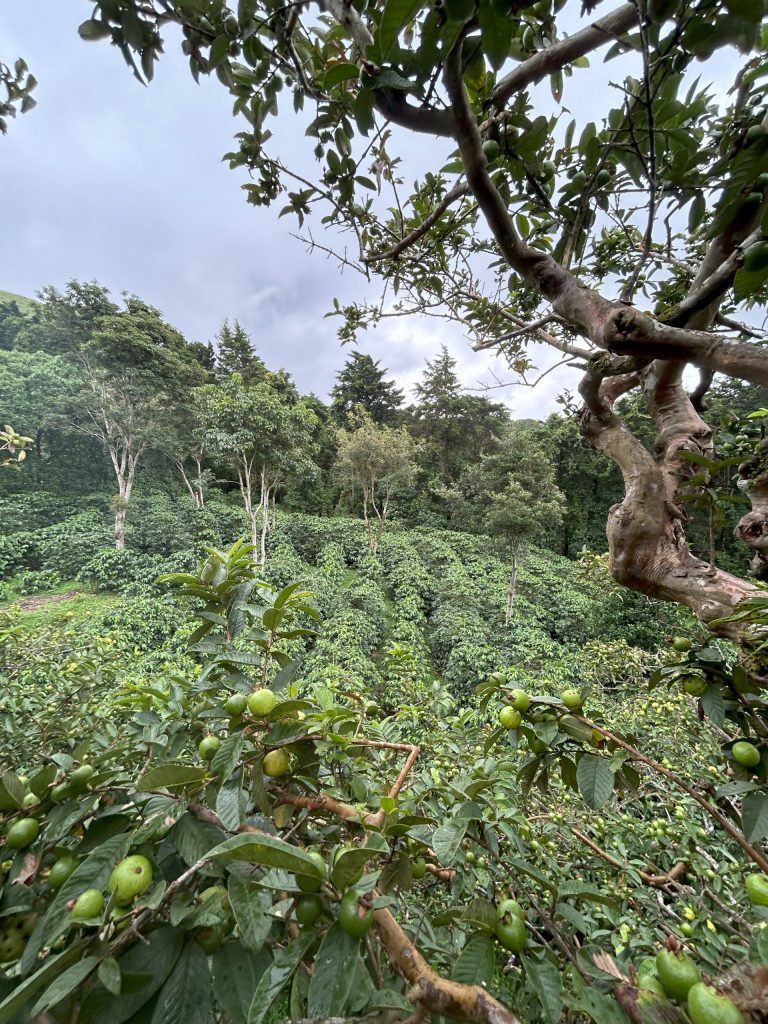
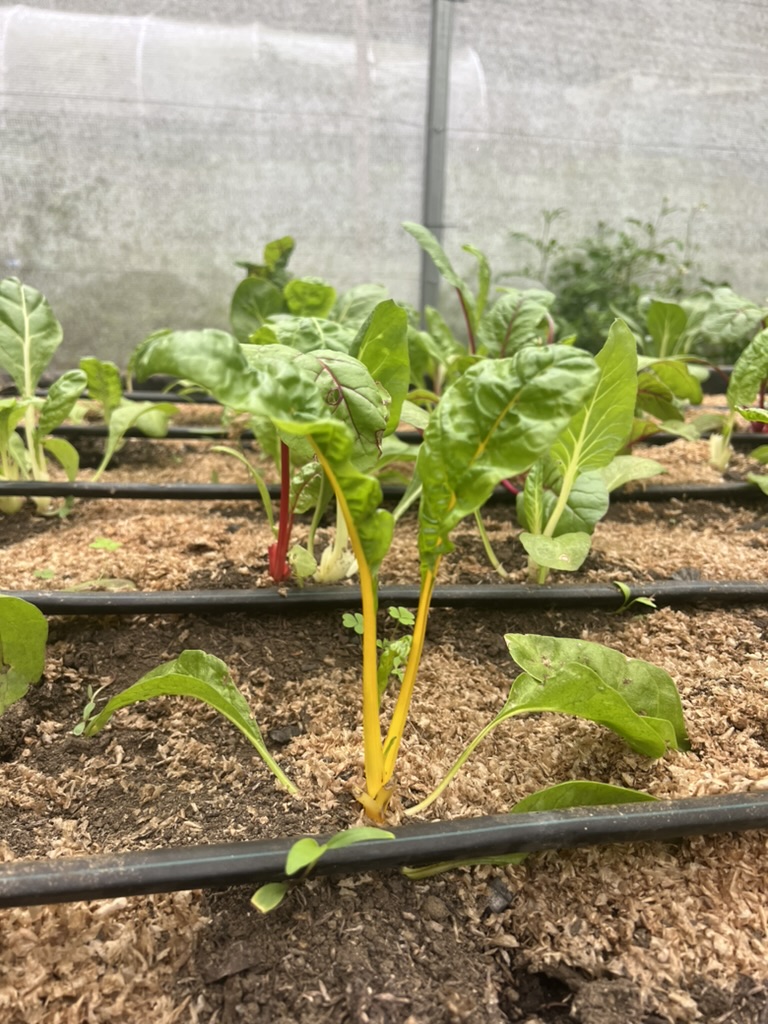
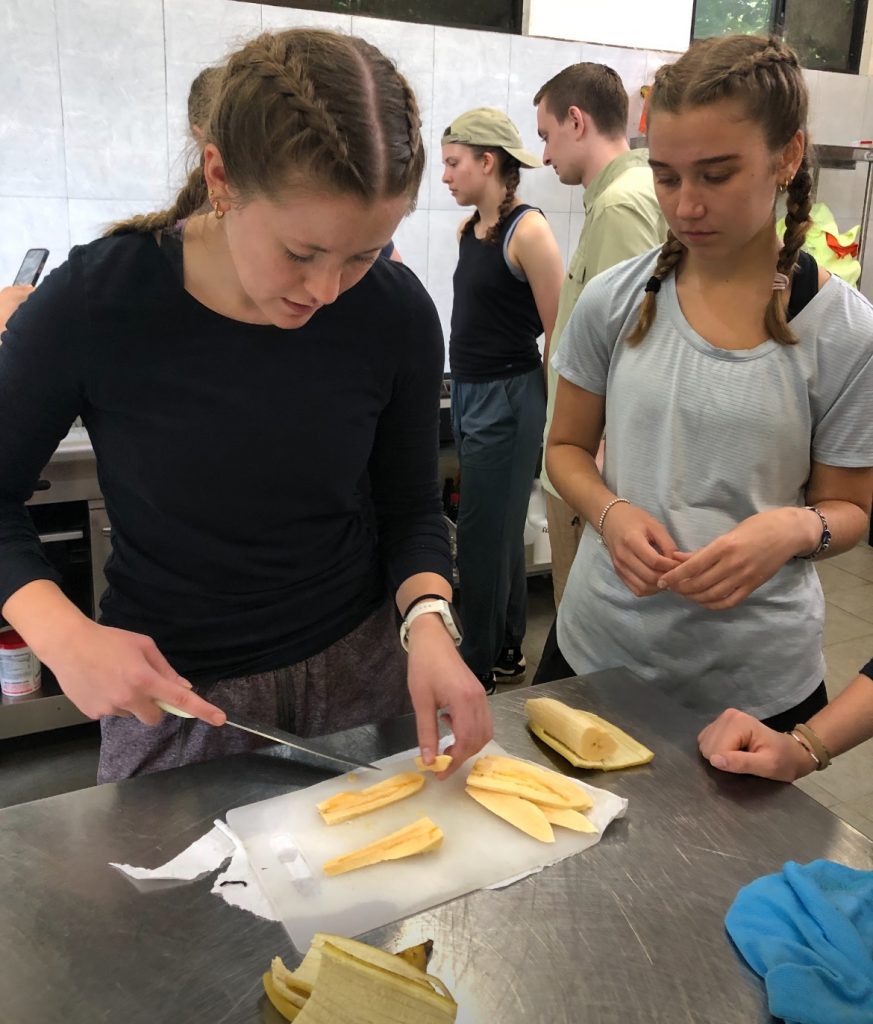
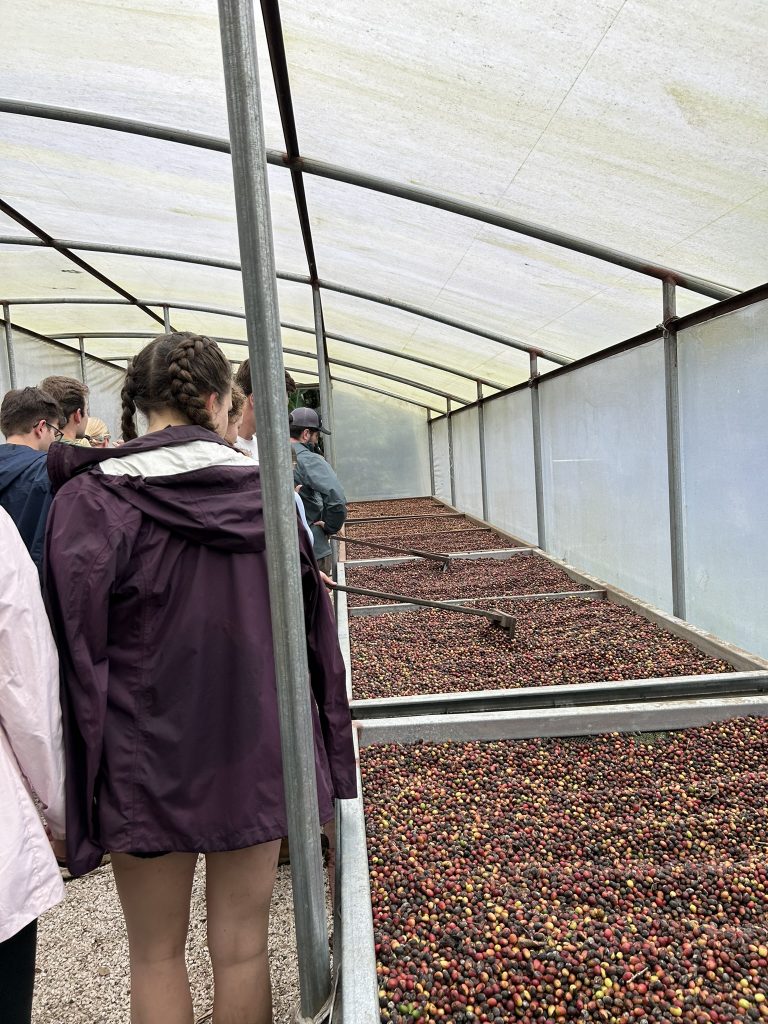
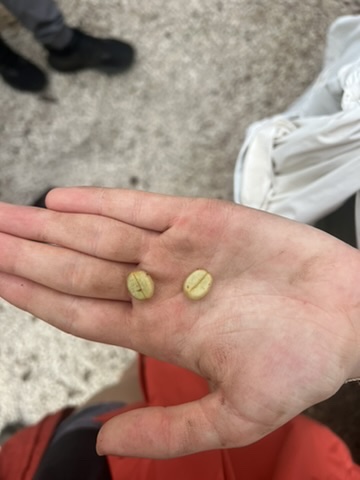
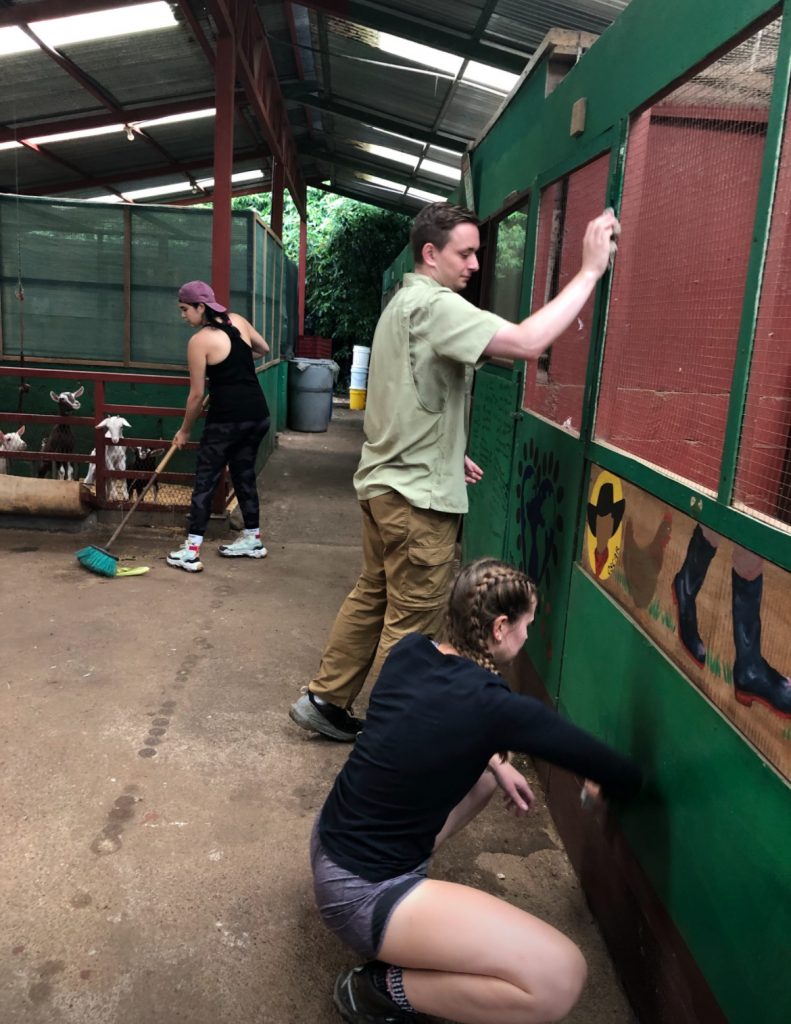
Leave a Reply